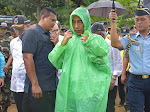While the European Union has pushed for a concerted fight against Russia, Southeast Asian countries have been divided and divided in their response to the war in Ukraine.
The European Union and the Association of Southeast Asian Nations (ASEAN) met on Wednesday (14/12/2022). to discuss more in-depth economic cooperation.
But the event did not produce a collective agreement to condemn Russia's invasion of Ukraine. The joint EU-ASEAN statement on the invasion said only "the majority of members" strongly condemned the war in Ukraine while stressing "the need to respect Ukraine's sovereignty, political independence and territorial integrity."
The one-day summit in Brussels, Belgium comes at a time when the conflict in Ukraine is having a major impact on the global economy. Russia's energy supply disruptions following the invasion of Ukraine since last February have had a devastating impact on the economy and inflation, driving up prices for everything from food to energy.
Response was divided on the Russia-Ukraine war
While the EU has pushed for a common front against Russia, ASEAN nations have been divided over their differing responses to the war in Ukraine.Vietnam and Laos, which have strong military ties with Moscow, remain impartial, while Singapore complies with Western sanctions against Russia. In a United Nations vote in October condemning Russia's annexation of Ukrainian territory, both Vietnam and Laos abstained along with Thailand.
Leaders of nine of the 10 ASEAN countries and leaders of 27 European Union countries joined the summit, which also marked 45 years of diplomatic ties. Due to the exception of the military junta, Myanmar was not represented at the summit.
Increasing investment in Southeast Asia
The EU-ASEAN Summit resulted in the EU's commitment to pouring billions of dollars in investment in Southeast Asia. We have to ensure that we have a strong position in our relationship with ASEAN," said Dutch Prime Minister Mark Rutte. "We are talking about supply chains around the world.
We are talking about growth potential," he explained. European Commission President Ursula von der Leyen announced a commitment of 10 billion euros by 2027 for infrastructure investment in ASEAN countries.
Tagged under the EU's "Global Gateway" programme, this commitment will primarily focus on green projects and connectivity. Trade, green and digital transformation, and health were among the areas of collaboration discussed as the two sides aim to strengthen economic ties through more trade.
"In the globalized world we live in today, it is very important for us to connect with like-minded nations," said Estonian Prime Minister Kaja Kallas. At the same time, the KKT also resulted in a trade agreement between the EU and ASEAN that was adapted to each ASEAN country.
This agreement replaces the EU's efforts more than 10 years ago for a free trade agreement with the bloc as a whole.
Also discussed the South China Sea and the situation in Myanmar
Tensions with China over sea lanes vital to international trade were another topic discussed by the two sides.
The Philippines, a member of ASEAN, and China have been at odds over claims to the disputed South China Sea. Still, China continues to be ASEAN's largest trading partner, and many countries in the region are wary of cutting ties with their powerful neighbour.
The release of political prisoners and an end to violence in Myanmar were also demanded in the joint statement. In addition, the summit also produced a joint statement expressing "deep concern" about instability on the Korean peninsula.





.jpeg)
